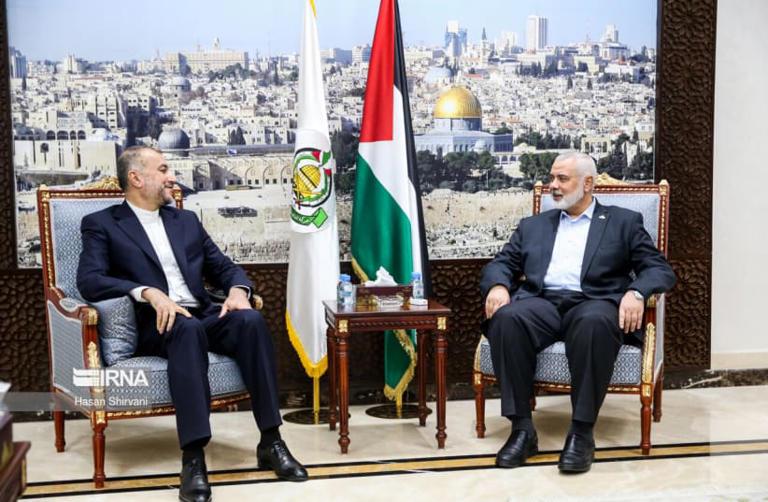
Why is Hamas worried about the October 7 narrative of Iran, Hezbollah
Hamas put out two denials this week about October 7, both of which raised eyebrows. Neither of the Hamas statements denies its crimes on October 7; rather, it is proud of how it massacred civilians and kidnapped children and elderly people.
Instead, it is concerned about reports that Iran and Hezbollah knew about the attack. Iran backs Hamas, and in the wake of the attack, Iranian Foreign Minister Hossein Amir-Abdollahian met Hamas leaders in Qatar, many of whom live in Doha. Hamas officials also live in Lebanon and have traveled to Turkey since October 7.
Despite all the support Hamas received, however, it remains concerned that eventually, evidence will emerge that other countries or groups had prior knowledge of the October 7 attack.
It is simply implausible that such a huge operation could be planned entirely in Gaza without anyone knowing. Iran has backed Hamas for years and has shown willingness to try to unify its various fronts against Israel to coordinate with Hamas.
That means Hezbollah, Palestinian Islamic Jihad, and other groups coordinate with Hamas and Iran. So, it would seem to be unbelievable that regarding October 7, there was no prior discussion about such an attack with Tehran and its proxies.
Hamas claims that Hezbollah did not know about October 7
Hamas, however, takes this issue very seriously. The terrorist group slammed a French newspaper for an article about the “timing of Operation al-Aqsa Flood.” Hamas claimed that the “journalist has included in his article full of fabrications and lies a claim about Yahya Sinwar asking Saleh al-Arouri to inform Mr. Hassan Nasrallah about the operation half an hour before it happened,” relating that to Osama Hamdan, a senior representative of Hamas in Lebanon.
Concerns about reports that Hezbollah knew about October 7, however, are not the only Hamas denial this week. It also slammed Iran’s Islamic Revolutionary Guards Corps spokesman for comments suggesting that October 7 was revenge for the US killing of IRGC Quds Force commander Qasem Soleimani.
“Hamas denies the validity of the remarks,” the terrorist group said. Hamas claimed that the attack on October 7 was due to “the dangers that threaten al-Aqsa Mosque.”
These statements show Hamas is now waging a war over perceptions of October 7. It wants to portray its commanders in Gaza as solely responsible and able to perform attacks without Iran’s coordinating hand. It wants to showcase that it is a fully Palestinian movement that doesn’t need to coordinate with Shi’ite Hezbollah.
It also wants to show it is not the junior partner of the Iranian-backed “axis” in the region; rather, Hamas is trying to show it is the “decider.”
This may tie into discussions relating to its leadership in Doha and officials in Beirut and how they relate to Sinwar’s leadership in Gaza. It doesn’t imply that the various leaders of Hamas are at odds, but it does seem to imply that the Gaza leadership wants the reins.
It also ties into other recent controversies, such as media claims that Hamas senior member Mousa Abu Marzouk had suggested the group could recognize Israel if Hamas came to lead the Palestinian Authority.
Furthermore, it ties into Sinwar’s letter this week to the Hamas “political” leadership abroad, his first statement since October 7, in which he bragged of Hamas’s defeating Israeli units in Gaza.
Source » msn





